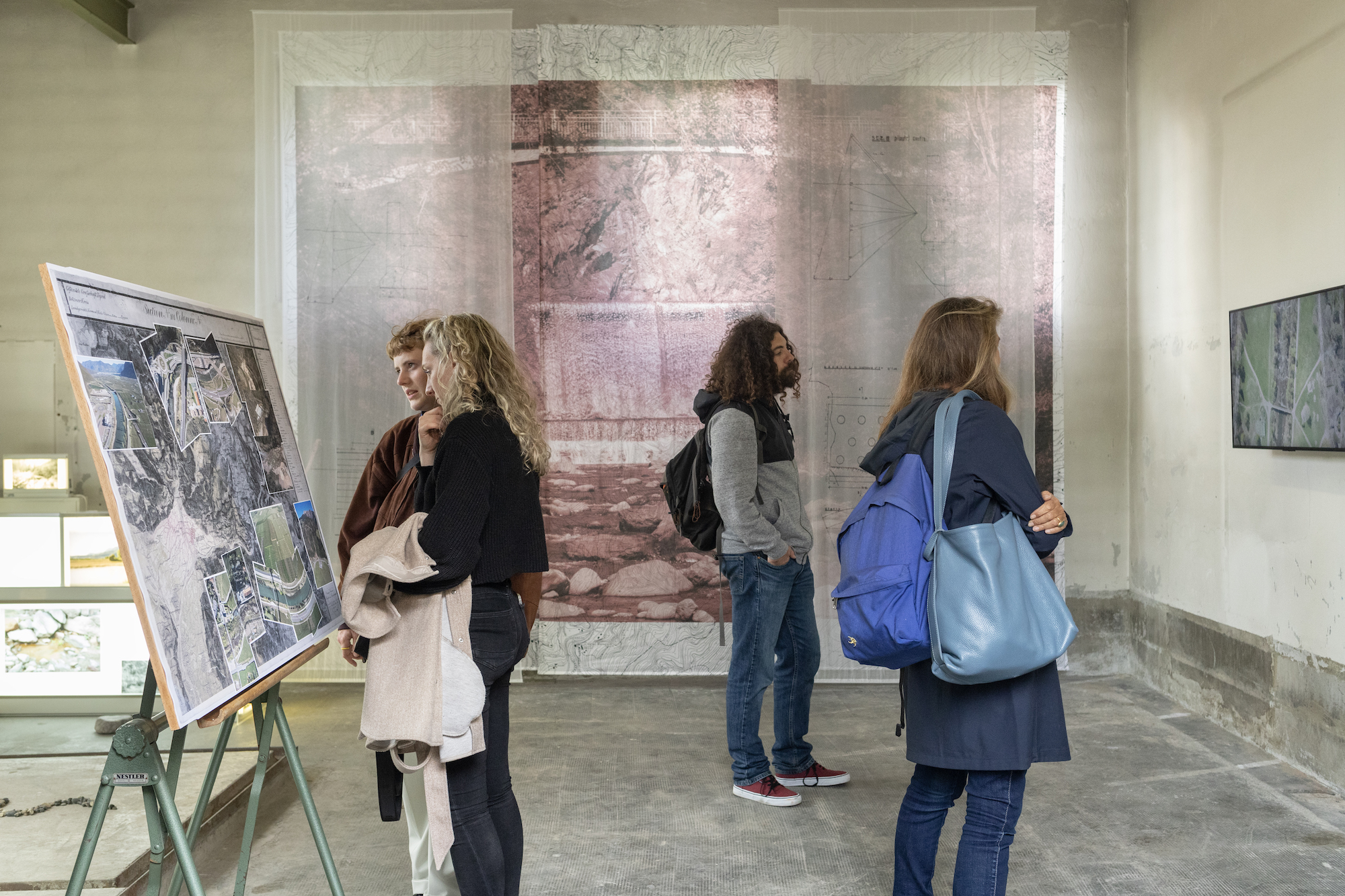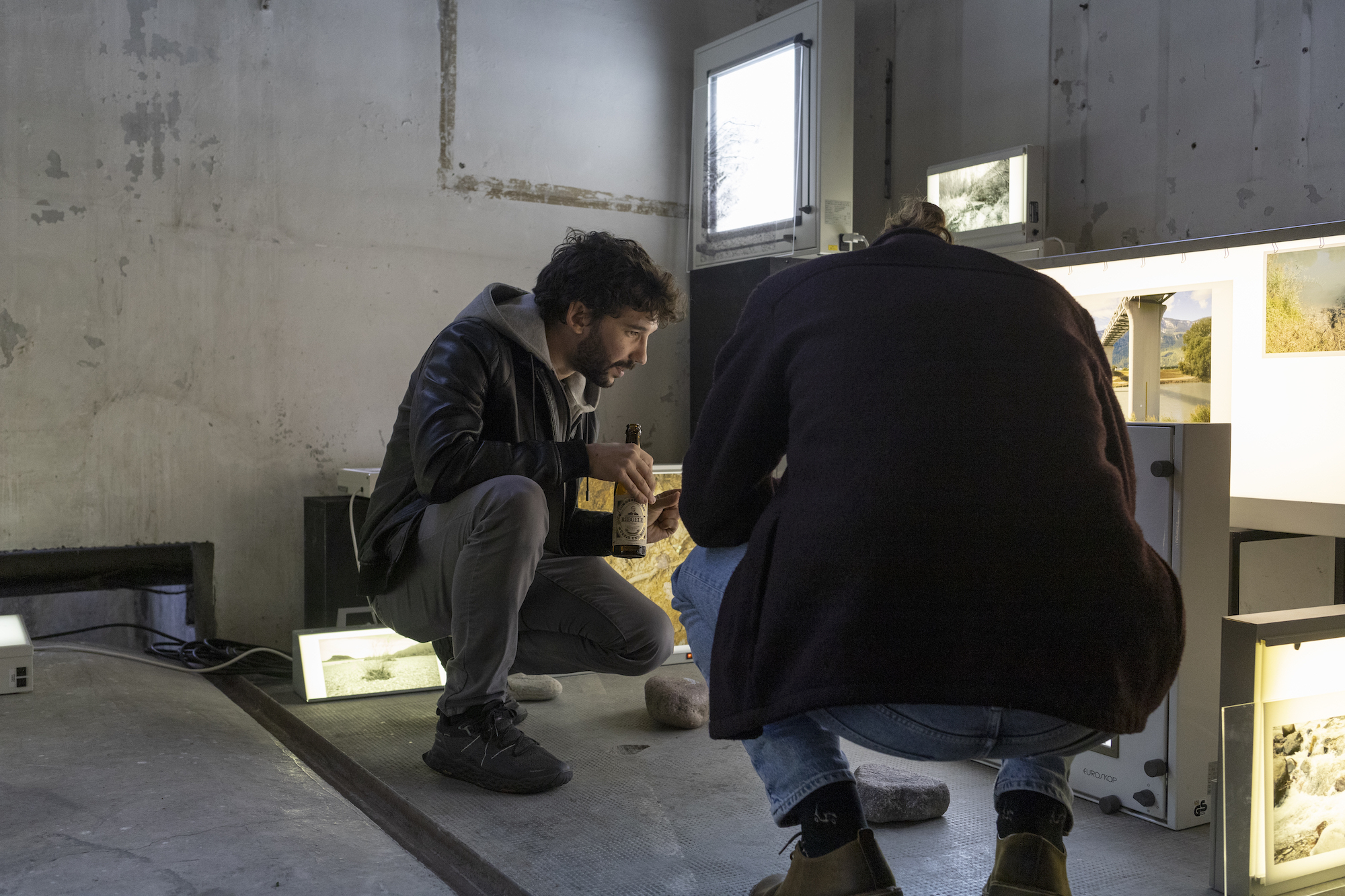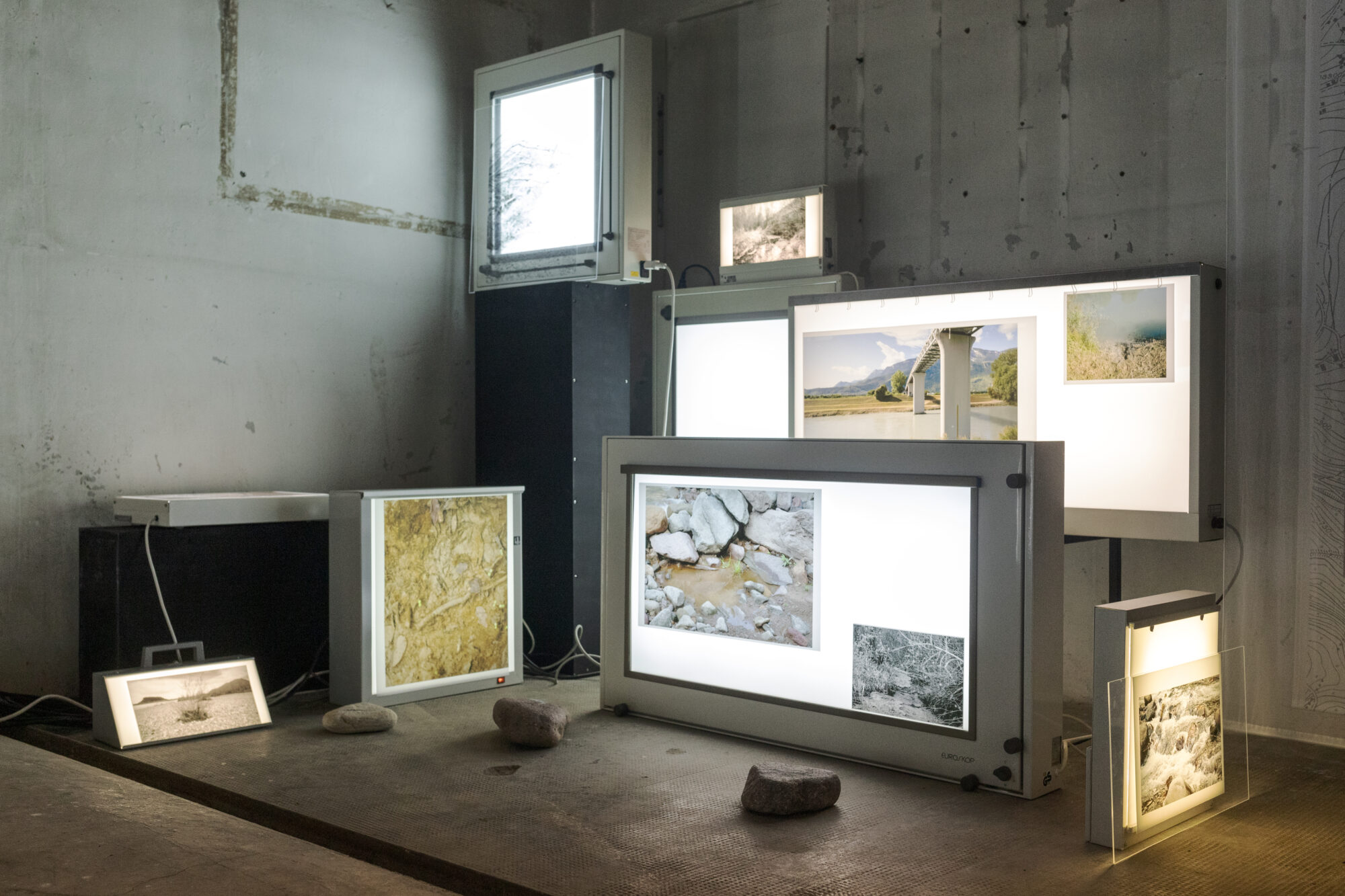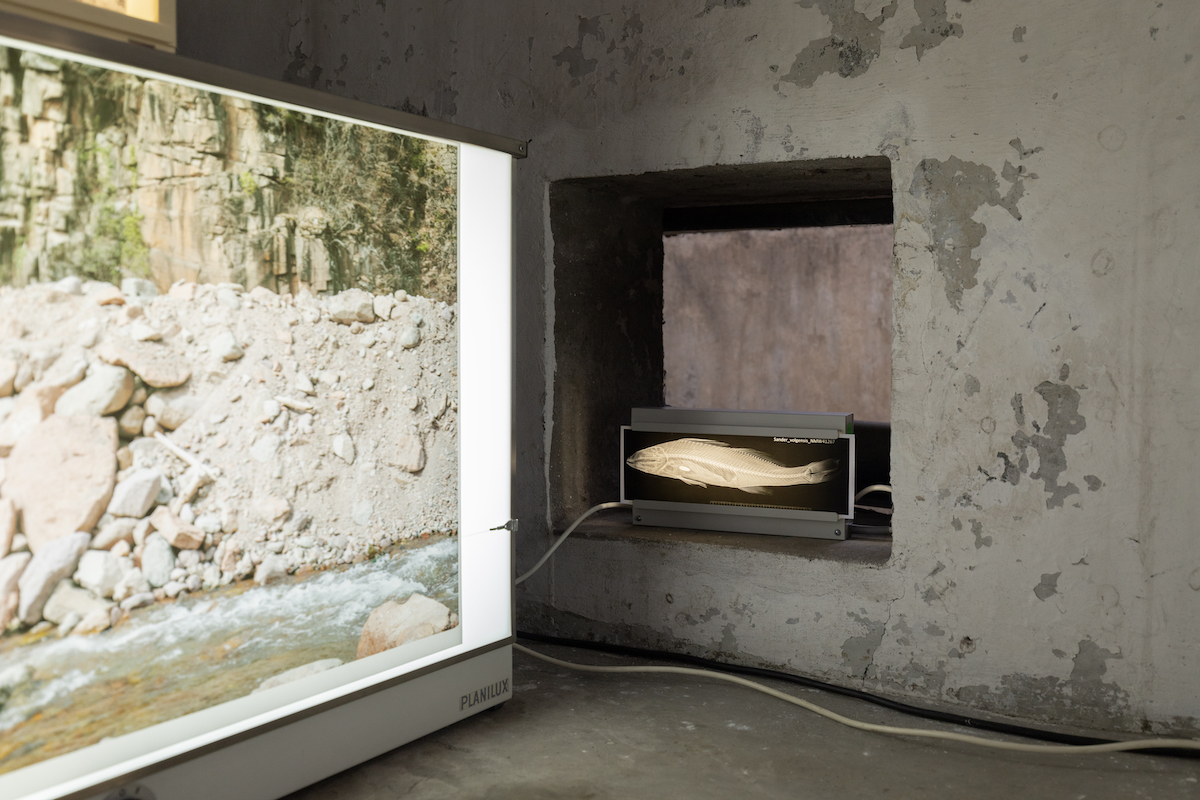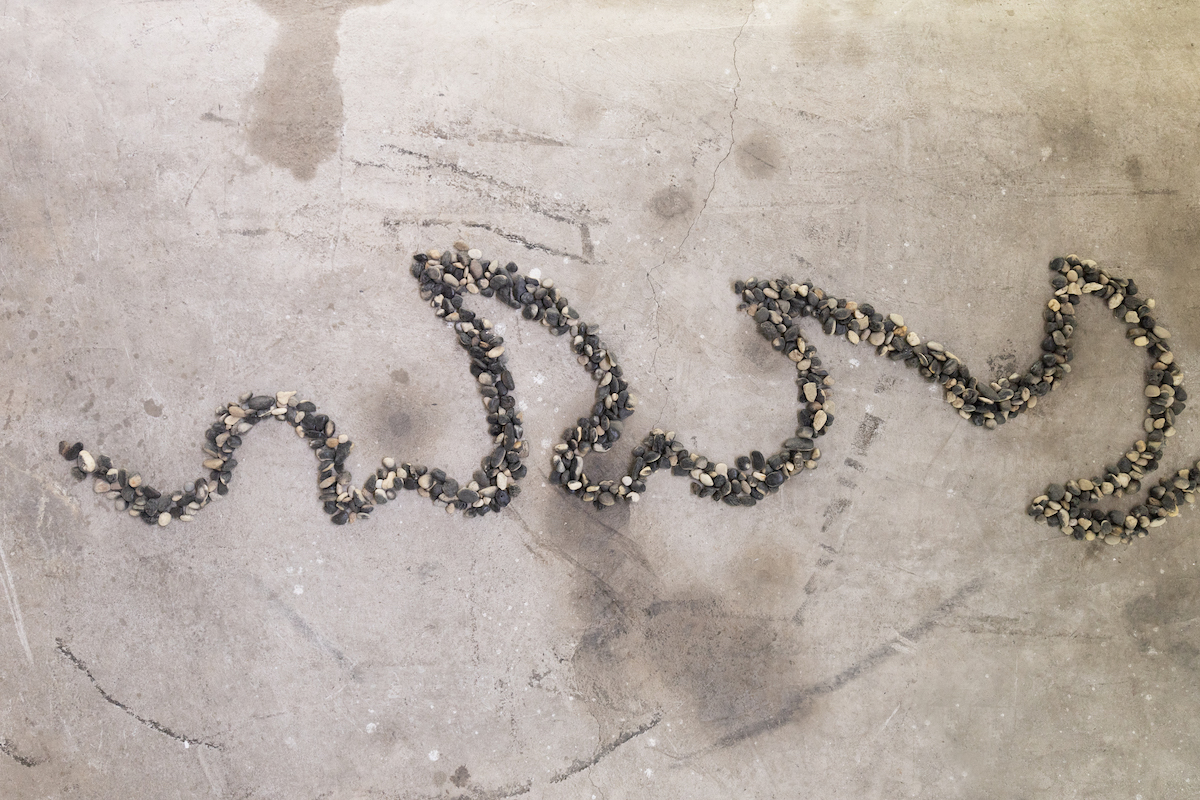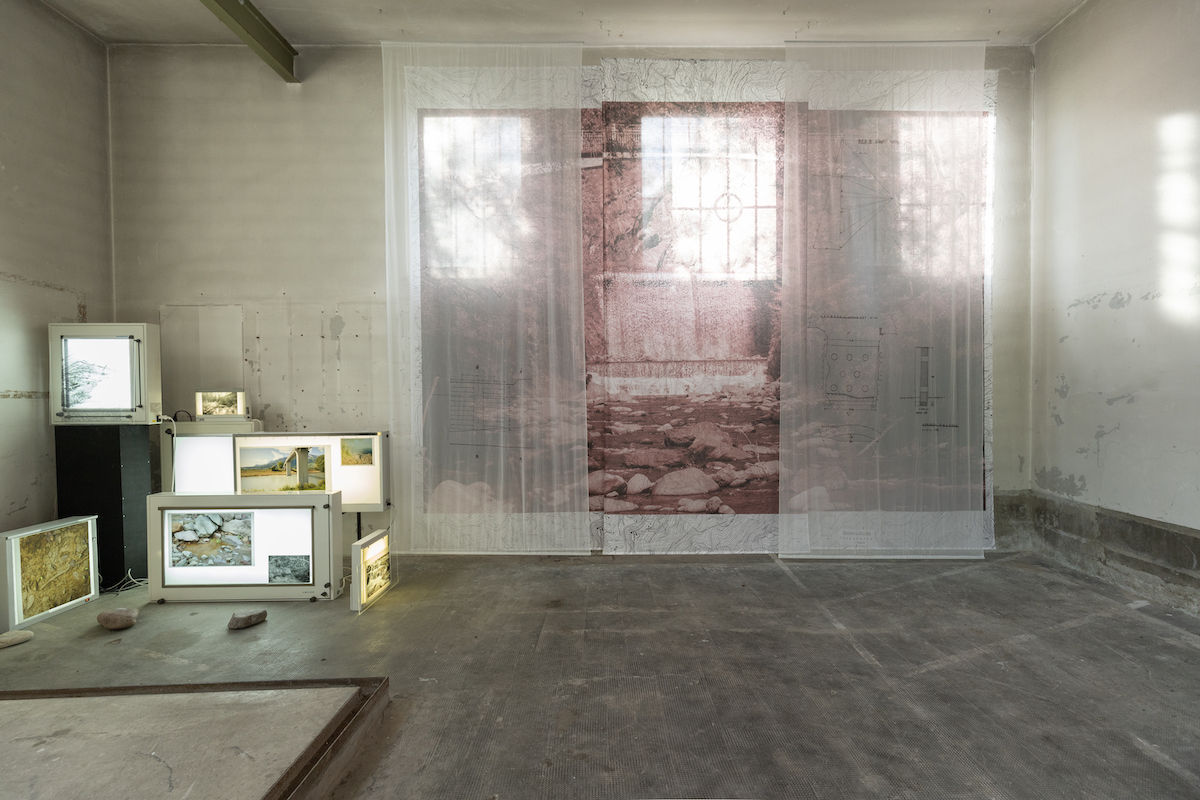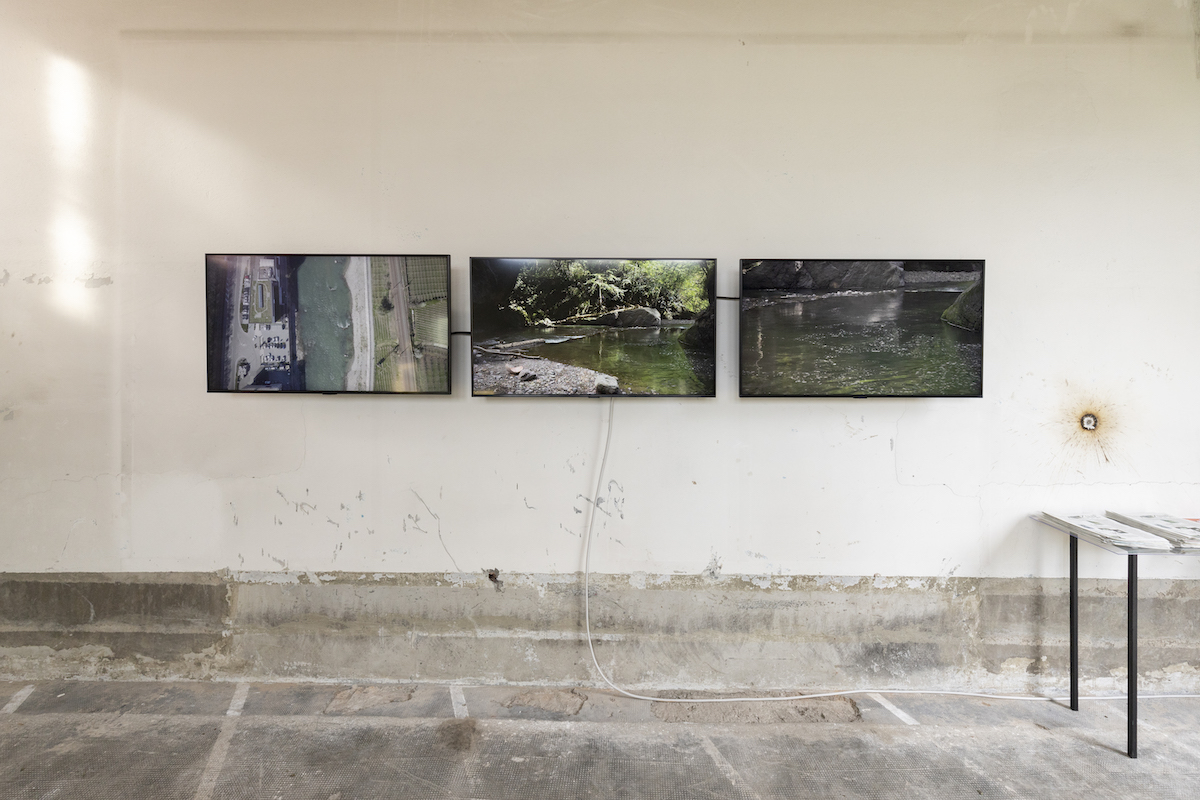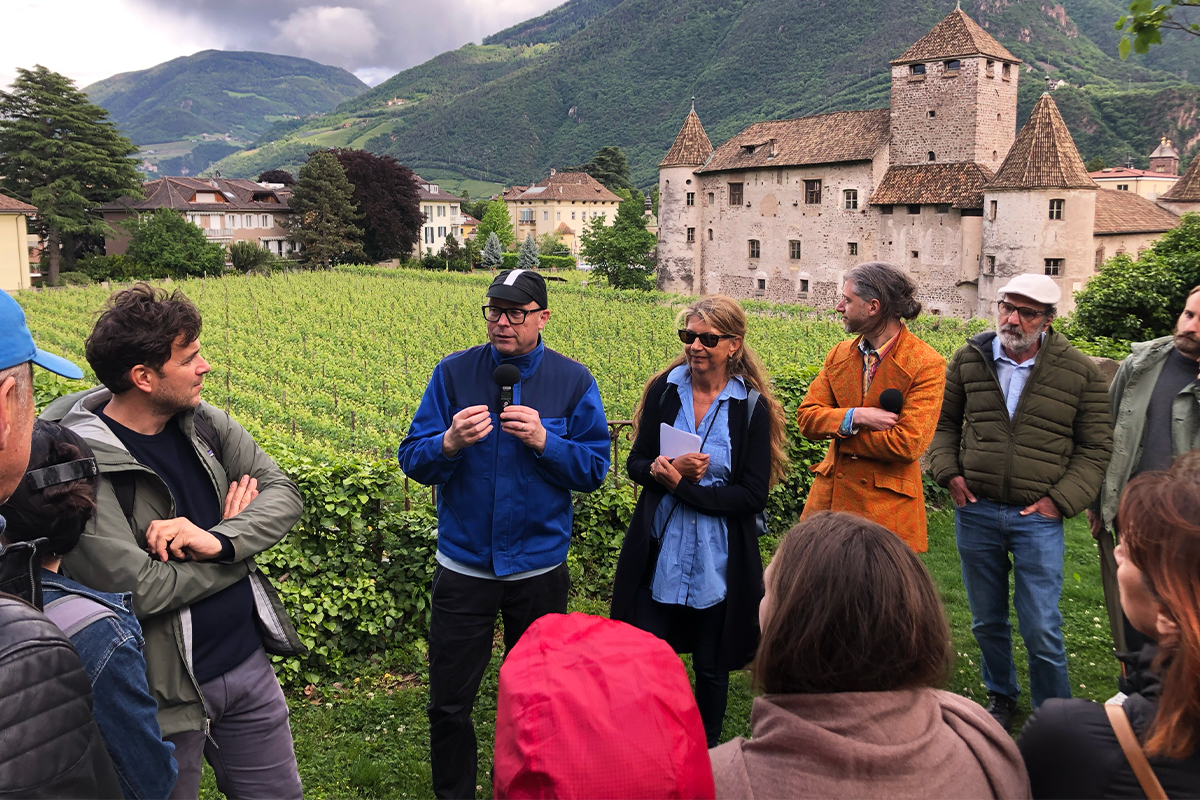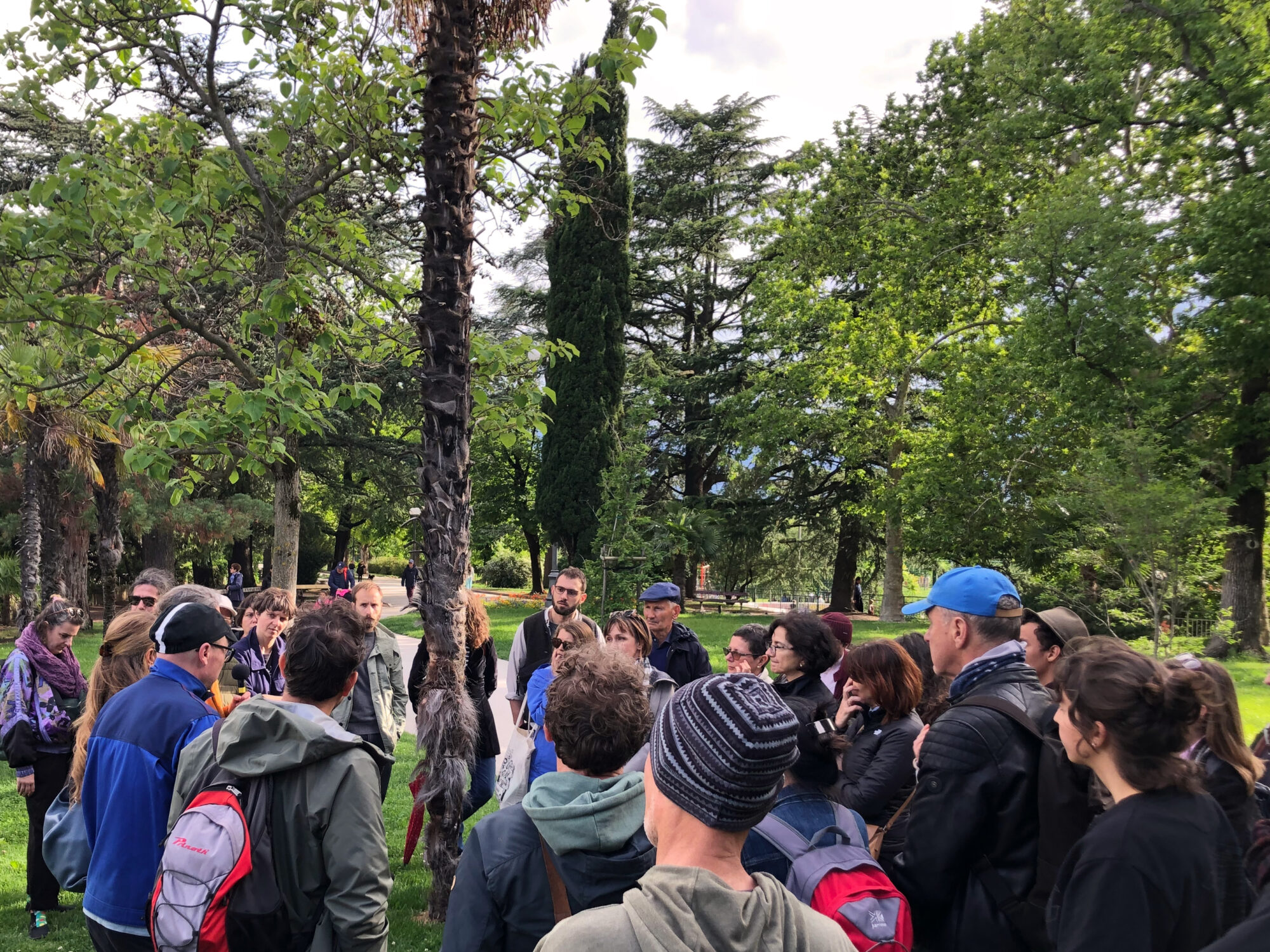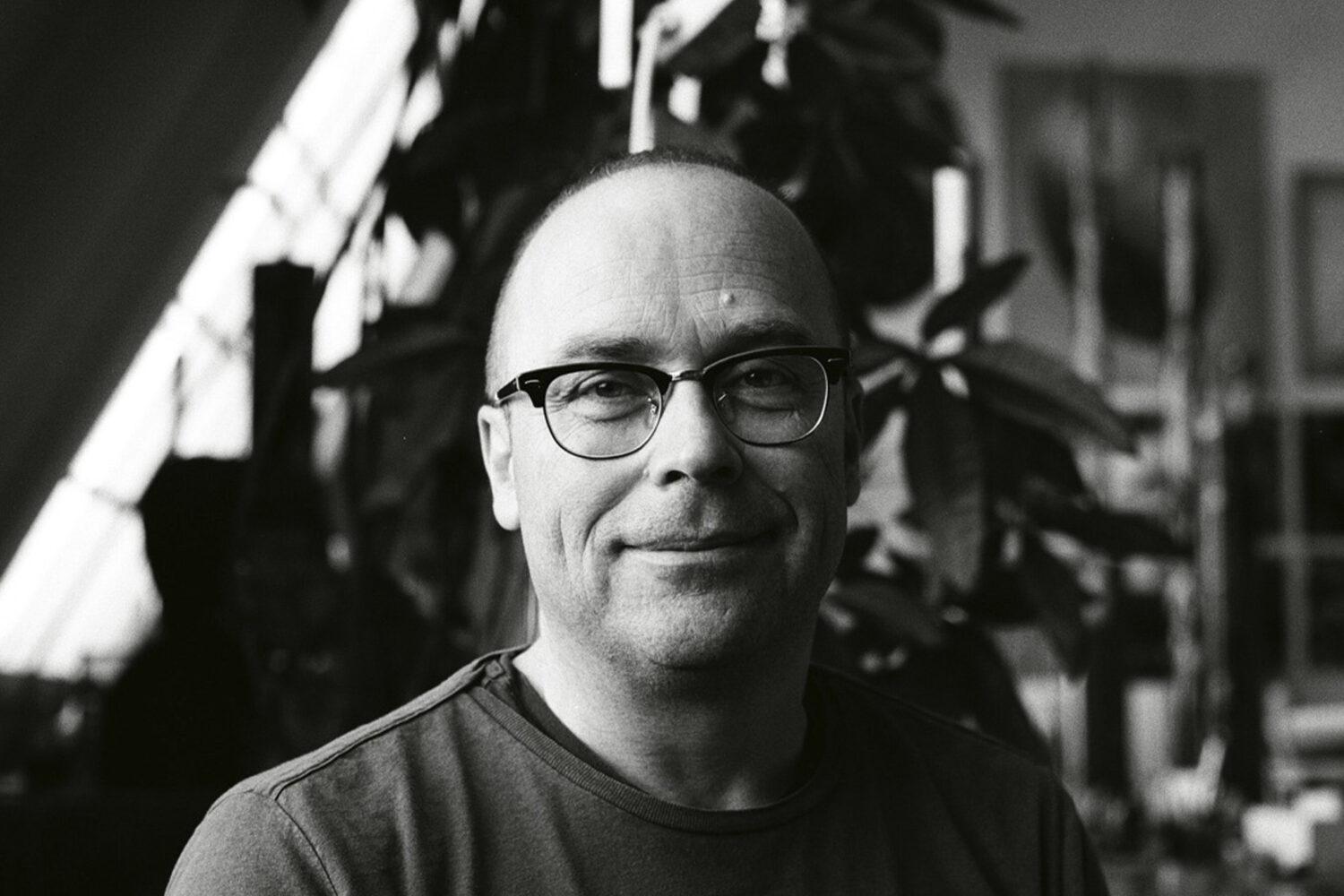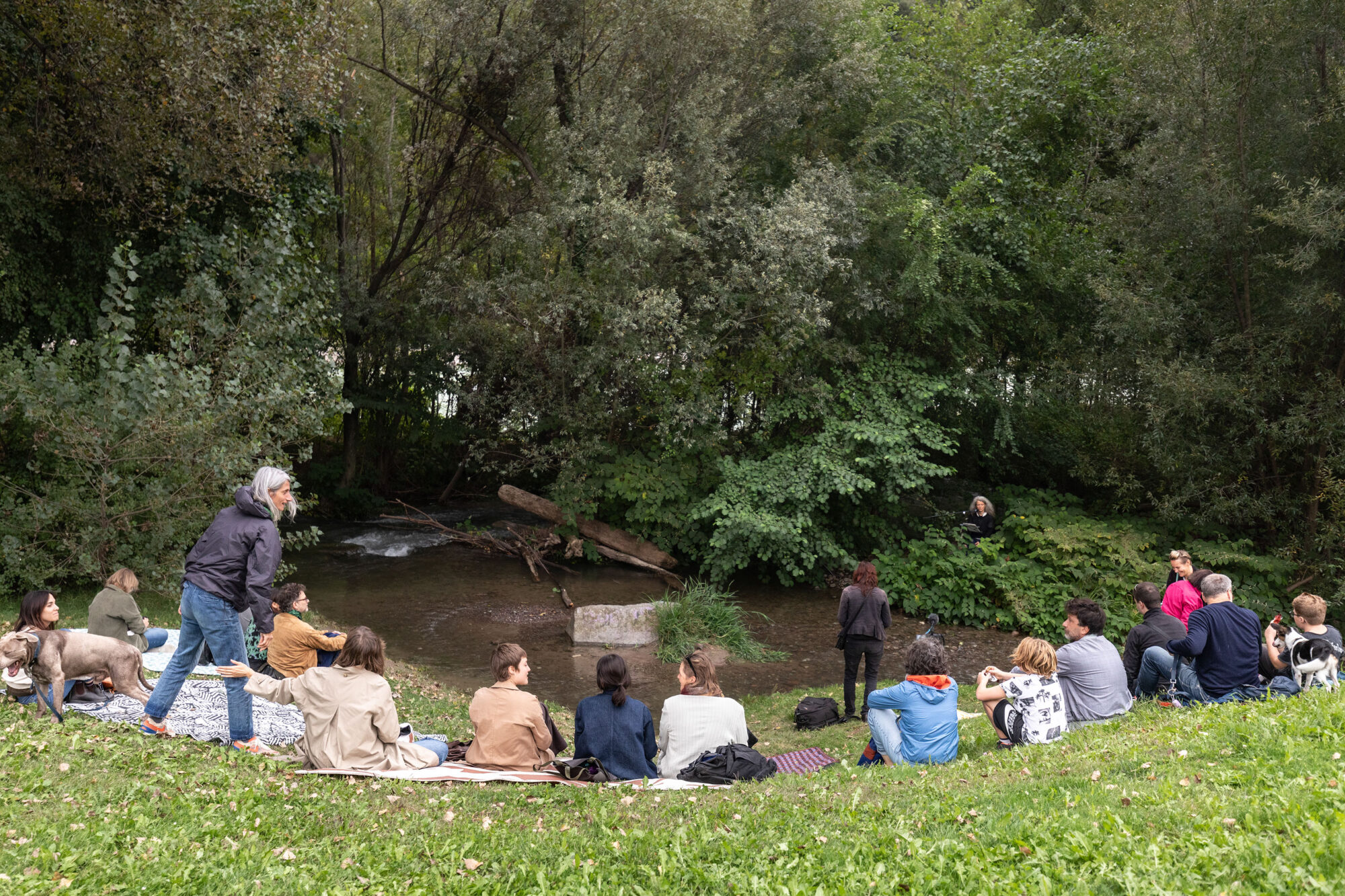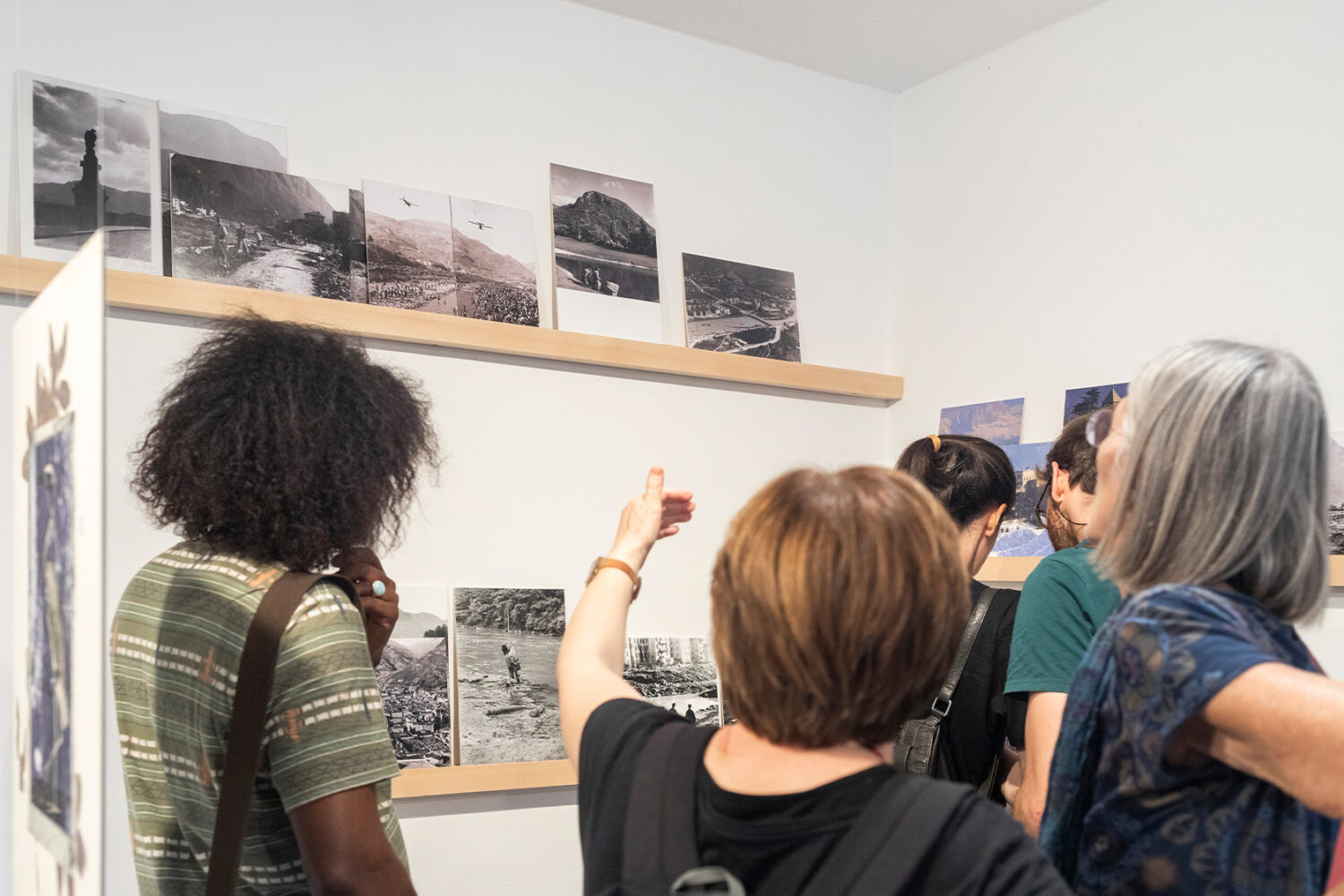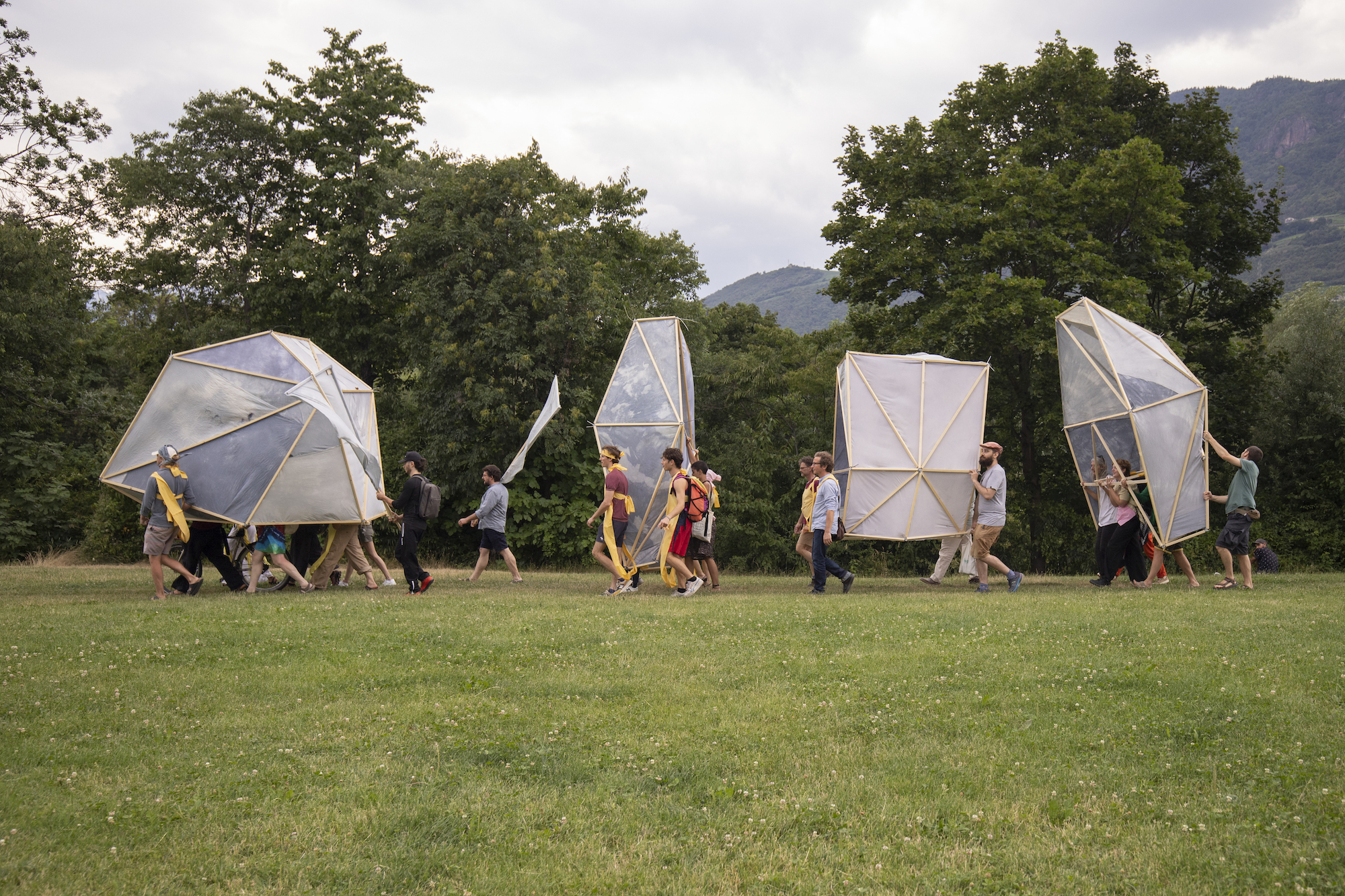FLUX – Herwig Turk – Space for Rivers
As part of FLUX – River interventions and explorations, Lungomare invited the Austrian artist Herwig Turk to artistically explore the river landscapes of Bolzano. In 2022 Herwig Turk has been researching and documenting the surroundings photographically and cinematically, conducting conversations with scientists and historians and thus documenting the river landscape as a complex system that is in constant flux.The results of his interdisciplinary work formed the basis for the exhibition Space for Rivers in the former hydroelectric power station Rendlstain in 2023.
Following his extensive work on the Tagliamento in Friuli and the Danube in Vienna, Herwig Turk was invited to develop a project on Bolzano’s rivers with the transdisciplinary and documentary gaze typical of his practice – nourished by meetings and in-depth studies involving biologists, historians, scientists, biomedical experts and water ecologists. Thanks to the research that these experts have provided, to their texts and images, and to the relationship that the artist has created with them, these other forms of knowledge have fostered a true co-production of the work and exhibition.
What takes shape is the image of a dynamic ecosystem of rivers regulating many lives, the cycles connected to the water table flowing underground to streams, the air and humidity moving twenty metres above the water level, the interaction with the surrounding areas, the plants, the sand and gravel banks, and the organic matter deposited there. In the exhibition, the installation retraces this research made up of crossings, explorations, documentations, interviews, recordings, in close relation to the space. A stratification of fragments and materials enter into dialogue with each other, mixing times, data, and visions, and going on to construct an image made up of memory and projection, an “other” landscape, suspended and always in progress. It thus becomes clear that the life, or rather, the many lives that inhabit the river have been intertwined over the centuries with the actions of human beings, with fences, regulations and deviations that over time have led people to lose their relationship with the city’s rivers. It is also in response to this that the artist claims a space for the rivers is necessary – to recognise their status and legal capacity within an inclusive socio-environmental order.
At the same time, Space for Rivers is a project in which the role of art is also called into play as a field of inquiry through which hidden discourses can be made visible. In this sense, the ex-hydroelectric power station Rendlstain chosen for the installation is also part of a proposition to reflect on a significant, though almost ‘invisible’ place with multiple and complex references to the social and industrial history of the city.
The exhibition was accompanied by a public program consisting of exhibition tours with the artist as well as three river explorations with experts, which invited people to take new perspectives on the river landscapes and to get to the bottom of their complex interrelations.
The Experts
Roberta Bottarin (Biologist, vice-director Eurac)
Peter Hecher (Biologist, Agentur für Bevölkerungsschutz)
Hannes Obermair (Historian, Eurac)
Gianluca Rigobello (Fisher)
Stefan Zerbe (Water ecologist, Professor in the faculty of Agricultural, Environmental and Food Sciences, Unibz)
“Although rivers have shaped landscapes for millennia and provided the basis for human and other than human survival, industrialisation in the western world has set in motion a counter-dynamic in which people shape and domesticate rivers by means of technology. (…) In my photographs and videos I try to identify patterns that indicate changes and inter-connections between human activity and rivers: traces in the landscape, water movements, variation in banks and flows. Sketches of hydraulic engineering projects, maps and elevation models encounter stones and gravel that imitate river patterns. The explanatory and evocative voices of scientists and engineers repeat and mingle with the images, creating perspectives of and approaches to river improvement. However, my art neither offers an idyll nor a simple solution
to complex problems.”
Herwig Turk in conversation with the project curators
Sat 13.05.2023
3 pm
Guided tour with the artist Herwig Turk
5 pm
The River Exploration I: re-thinking the city, with Waltraud Kofler-Engl (art historian, Unibz), David Hofmann (neuroscientist and climate activist) raises the question of what role rivers have played in the development of our modern cities and how they will continue to shape our environment and our coexistence in the future.
Thu 25.05.2023
6 pm
Guided tour with the artist Herwig Turk
6.30 pm
The River Exploration II: Metabolic disorder between city and river, with Peter Hecher (Biologist, Agency for Population Protection) and Roberta Bottarin (Ecologist, Vice Director Eurac Research) provides an opportunity to increase our awareness of the river as an ecosystem and to learn to understand the benefits of a natural river landscape.
Fri 26.05.2023
6 pm
The River Exploration III: inhabiting the river, draws attention to the political role that river space has in our society. Sociologist Ermira Kola (Alexander Langer Foundation) and street worker Diana Seyffarth (Volontarius) address the open but often invisible conflict between politics and social fragility, housing rights and anti-human architecture. We gain insight into the constant redefinition of the conditions for coexistence between the urban context and those people who are pushed to the margins of society.
Herwig Turk lives and works in Vienna and Lisbon. His projects create intersections between art, technology and science. From 2010 to 2013 he was “Artist in Residence” at the IMM (Instituto da Medicina Molecular), Lisbon. From 2003 to 2009, Turk collaborated with Paulo Pereira, head of the ophthalmology department at IBILI (Institute for Biomedical Imaging and Life Sciences, Coimbra). In recent years, his work has been shown at the MMKK Museum Moderner Kunst Kärnten in Klagenfurt, the MAK Museum für angewandte Kunst in Vienna, the Seoul Museum of Art in South Korea, the Neues Museum Weserburg in Bremen, the TESLA Labor für Medienkunst in Berlin, the Galerie Georg Kargl in Vienna and the Transmediale in Berlin, among others. Since 2014 he has been teaching as a senior artist in the Social Design Department at the University of Applied Arts in Vienna.
Year
2022–2023
